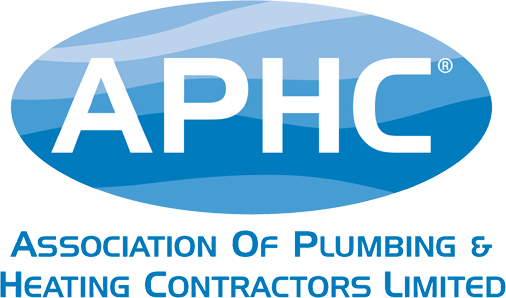This advice guide is to provide essential basic information that a homeowner may consider before having work carried out in their home. This guide is about understanding heat pumps and their use within the home.
Heat pumps are a very efficient way to collect and provide heat energy to your home. As a result they are becoming more and more popular. With the introduction of the BUS grant (Boiler Upgrade Scheme) customers are looking even closer at these appliances as a viable choice.
What are heat pumps?
While heat pumps may sound complicated the principles are quite simple, they use refrigeration gases to extract heat energy from cool sources such as the ground or the outside air, and even water. When it collects the heat energy it transfers it to a heating system.
A good example of a heat pump working is a domestic refrigerator or freezer. The main compartment is cold or even freezing, this is because a refrigerant gas extracts the heat energy from the food compartment, keeping it cold, and then releases the heat energy into the atmosphere via the black pipework and grills at the back of the appliance. If you have a look at the back of a fridge you will find it will be warm. Now imagine this is your home, we extract the heat energy from the ground and use it in your heating system. The main types of domestic heat pumps in the UK are ‘ground source heat pumps’ and ‘air source heat pumps’, although ‘water source heats pumps’ are now entering the market.
Ground source heat pumps
Ground source heat pumps tap into the heat energy supplied by the sun. Imagine the earth as a huge solar collector, absorbing heat energy from the sun all year around. Of course the surface of the earth is also susceptible to heat losses through weather, for example rainfall. However, the deeper we dig the more stable the temperature becomes at around 8-10o C.
The heat collector element of the heat pump can be in one of three forms, horizontal, vertical or a slinky. This must be accurately sized for the heat pump system being installed. Horizontal collectors are used when there is a lot of land, generally the pipe is laid out in long straight runs. Vertical collectors are now preferred because they are more efficient, run inside a bore hole around 75 to 100m deep. Slinky collectors are used instead of horizontal collectors when the space is limited, taking up a third less space. The size of loop or collector must be accurately sized, this will be done as part of the overall design.
Air source heat pumps
Air source heat pumps work on a similar principle to ground source heat pumps, however, this time the heat pump uses the outside air, to absorb heat and transfer it to the building. One big advantage of these types of heat pumps over ground source heat pumps is the lower installation cost due to the air source heat pump not needing ground loops and trenches or bore holes.
Are heat pumps suitable?
There are considerable advantages to installing heat pumps and in some cases they will save you a considerable amount of money and reduce the overall emissions produced and released into the atmosphere by a boiler. However, there are still some considerations to be thought through before looking further. The first has to be the availability of outside room or space. A ground source heat pump using pipework laid in the ground will require a considerable amount of space to be effective; consider whether drilling a bore hole is possible and it may be that you can only decide this after a survey has been conducted. An air source heat pump will need to be mounted on a wall or be free standing on the ground with sufficient clean air around it.
The next consideration concerns your home. You must make sure that your property is well insulated before fitting any renewable technology for heating your home. This will include cavity wall insulation and double or triple glazing windows and doors, along with draft excluders.
Finally, the heating system you want to use and the fuel currently available will have a bearing on the effectiveness and suitability of a heat pump. For example, heat pumps work extremely well and save more money when replacing a solid fuel boiler in a property with underfloor heating. Therefore it may not actually be advantageous to install one if you already have a highly efficient mains gas boiler with a traditional wet central heating system. A qualified installer will be able to advise you after conducting a survey.
Choosing an Accredited Installer
For homeowners, choosing an accredited installer is crucial for ensuring the quality and reliability of their heat pump system. Here are some tips for selecting an accredited professional:
- Check Credentials: Verify the installer’s accreditation status with the relevant certification body.
- Read Reviews: Look for customer reviews and testimonials to gauge the installer’s reputation and past performance.
- Ask for References: Request references from previous clients to get firsthand feedback on the installer’s work.
- Compare Quotes: Obtain multiple quotes to ensure you are getting a fair price for the installation.
Conclusion
In summary heat pumps are a very efficient way to heat a home, they could save you money on your heating and hot water running costs. But, heat pumps should not simply be considered a straight alternative to a boiler. Careful design and survey work should be undertaken to decide if a heat pump is the right piece of equipment to install for your home.About APHC
APHC is the trade body for the plumbing and heating industry in England and Wales. APHC members are qualified and professional businesses who are committed to high standards of workmanship and high levels of customer service. Only those plumbing and heating businesses that have passed our quality assurance criteria are accepted as members, giving you the consumer peace of mind.Find a Quality Plumber
Visit www.aphc.co.uk/find-an-aphc-member to find a qualified and reliable plumbing and heating contractor local to you. Alternatively, contact the Association of Plumbing & Heating Contractors on 0121 711 5030.Please note that this information is meant as a starting point only. Whilst all reasonable efforts have been made, APHC makes no warranties and will not be responsible for any errors or omissions in the information nor any consequences of any errors or omissions.



